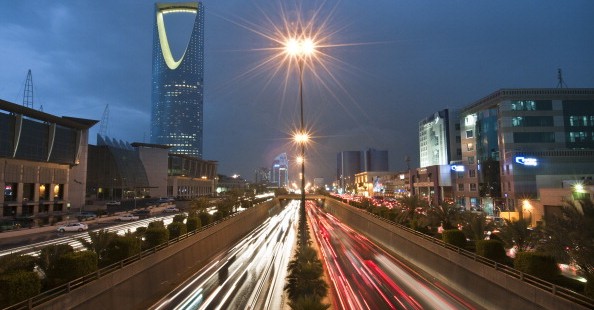Saudi Arabia Sets Record Budget For 2013
The government plans to spend $219 billion in 2013, 19 per cent higher than the amount budgeted for 2012.

Saudi Arabia has set a record state budget for next year as high oil prices allow heavy spending on welfare and infrastructure projects, helping it avoid the severe social unrest seen in other parts of the Arab world.
The government plans to spend SAR820 billion ($219 billion) in 2013, Finance Minister Ibrahim Alassaf said as he presented the budget to King Abdullah on Saturday.
That amount is 19 per cent higher than the SAR690 billion that the world’s largest oil exporter budgeted for 2012. It is slightly below the estimated SAR853 billion that the government actually spent this year, but analysts said actual spending was on track to continue climbing in 2013.
“The 2013 budget points to a continued strong expansionary fiscal stance,” said Monica Malik, chief economist at investment bank EFG-Hermes in Dubai, who predicted actual spending would rise by 10 per cent or more next year.
Saudi Arabia traditionally makes conservative projections for both spending and oil revenue, leaving room for actual expenditure and budget surpluses to come in much larger than initially forecast.
“Spending is still following an expansionary policy … If oil prices go below $70, then there can be a problem, but even then what is reassuring is that there are very high foreign reserves that serve as a cushion,” Saudi economist Abdulwahab Abu Dahesh said.
He was referring to the Saudi central bank’s net foreign assets, which expanded to a record SAR2.35 trillion in October this year.
RAMPING UP SPENDING
Riyadh has been aggressively ramping up spending for several years to ease domestic political tensions and because it wants to diversify the economy away from heavy dependence on oil, in case of a future plunge in global oil prices.
Capital spending totals SAR285 billion in the 2013 budget, much of it going to projects such as ports, railroads and water resources. Expenditure on education and health is also set to increase sharply.
Fahd Alturki, senior economist for Riyadh-based Jadwa Investment, said that after several years of big spending rises, the economy was starting to find it harder to respond to additional government money.
Nevertheless, he predicted the budget would help Saudi Arabia grow strongly next year, especially in sectors that depend on domestic demand such as retail and telecommunications.
The country is already enjoying a private sector boom. Gross domestic product, adjusted for inflation, expanded 6.8 per cent this year, the finance ministry said. The private sector shot up 7.5 per cent, outpacing state sector growth of 6.2 per cent.
The government raised its estimate of GDP growth in 2011 to 8.5 per cent from 7.1 per cent, without explaining why the belated revision, which was due to the completion of a census, was so large.
SURPLUS
Next year’s budget plan envisages revenue of SAR829 billion, which implies a small budget surplus of just SAR9 billion. But if global oil prices stay above $100 a barrel, the actual 2013 surplus will be far larger.
While the 2012 budget originally envisaged revenues of SAR702 billion, they actually amounted to an estimated 1.24 trillion.
The budget document did not reveal the oil price level that Riyadh is assuming for next year, but Malik at EFG-Hermes calculated that the budget implied an oil price of around $64-67 per barrel, with average Saudi oil production of about 9.5 million barrels per day.
Data released by the finance ministry on Saturday indicated the government posted a budget surplus of 14.2 per cent of GDP this year. Malik predicted the surplus would declined to 7.4 per cent next year – still one of the highest in the world.
